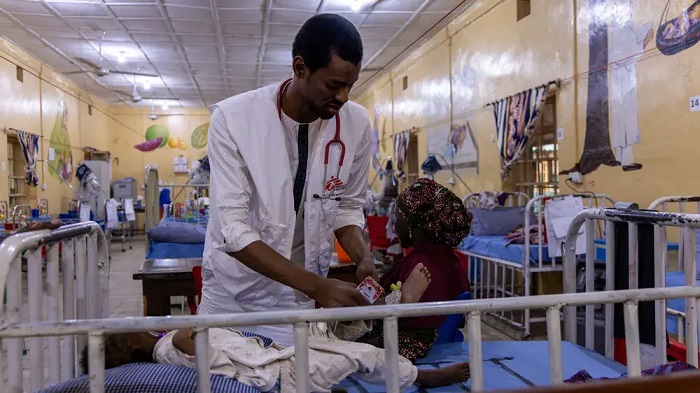
The World Food Programme (WFP) has issued a stark warning that its vital operations in northeast Nigeria could come to a complete halt due to an acute shortage of funding, deepening an already severe food crisis in the region.
Borno State, the epicenter of conflict and displacement in Nigeria’s northeast, is bearing the brunt of this worsening situation.
The UN agency revealed that aid reductions have already begun, forcing vulnerable families into harrowing dilemmas: “Families here will face impossible choices: go hungry or flee again,” said Dr. John Ifuk-Ibot, WFP’s nutrition chief in Nigeria.
Margot van der Velden, WFP’s Regional Director for West and Central Africa, confirmed that “from the beginning of August, we will have to face the painful reality of suspending our operations,” underscoring the gravity of the funding shortfall.
The crisis affects nearly five million people grappling with food insecurity, exacerbated by ongoing violence, widespread displacement, and climate shocks. Children remain the most vulnerable, with thousands at risk of severe malnutrition.
WFP estimates it urgently needs $130 million to maintain its humanitarian programs through the end of 2025. Without this crucial funding, as many as 150 nutrition centers are at risk of closure, imperiling the treatment of approximately 300,000 malnourished children.
On August 6, the agency renewed its desperate appeal to international donors, urging immediate support to prevent a catastrophic humanitarian collapse in a region already devastated by years of turmoil.
The impending suspension of aid highlights the precariousness of the situation in northeast Nigeria, where millions rely on international assistance for survival. As the funding gap widens, the consequences for food security and human life grow increasingly dire.



